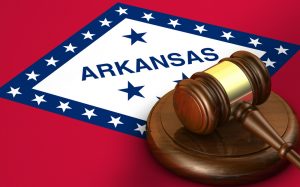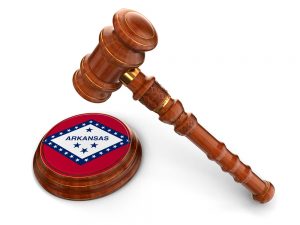 When it comes to the apparent evils of workers’ compensation subrogation, the state of Arkansas truly believes that all an injured employee ever wants is a fair advantage.
When it comes to the apparent evils of workers’ compensation subrogation, the state of Arkansas truly believes that all an injured employee ever wants is a fair advantage.
In Liberty Mutual Ins. Co. v. Youngblood, 2020 WL 5542443 (Ark. App. 2020), it was argued that § 11-9-715 does not allow attorneys’ fees to be awarded outside of proceedings before the Workers’ Compensation Commission. The Court of Appeals disagreed and held that even requesting that the plaintiff prove that the employee was not made whole can lead to liability for the plaintiff’s attorneys’ fees. The court stated:
As an intervenor asserting a subrogation lien in the third-party lawsuit, Liberty was provided with Youngblood’s medical information as well as the confidential settlement information. However, Liberty refused to withdraw its lien after the settlement agreement had been finalized. Not until Youngblood’s attorney filed a motion to dismiss Liberty from the lawsuit did Liberty request a made-whole hearing. At the made-whole hearing, Youngblood was required to incur legal expenses to preserve the benefits he had been awarded and to force Liberty to release its lien. Based on the foregoing, we hold that under these circumstances, the circuit court had the authority to award attorneys’ fees under Arkansas Code Annotated section 11-9-715.
 Liberty also argued that in its assertion of a statutory subrogation lien, whether or not the employee was made whole did not amount to a “controversion” of a claim. In fact, quite the opposite, it was the employee who was controverting a statutory right owned by the carrier. In its decision, the court regressed to the inapposite application of “equity” in a worker’s compensation statutory subrogation right and held that “equity requires that an insured be made whole before the insurer’s right to subrogation arises.” Ignoring the chicken and the egg dilemma (i.e., how do you know if you have a subrogation right before there is a determination as to whether the employee is made whole?), the illogical decision of the court was that because “the circuit court determined that Youngblood had not been made whole by the settlement agreement; therefore, Liberty’s right to subrogation never arose.” The court cited a 2014 decision which holds that a carrier’s “mere filing of the intervention” and subsequent waiver of its subrogation lien without ever going to a made-whole hearing does not amount to controversion. Burton v. Chartis Claims, Inc., 2014 WL 244284 (Ark. App. 2014). Pushing the case to a made whole hearing does. Therefore, all a plaintiff’s attorney has to do in Arkansas is mouth the words “my client is not made whole” and magically the carrier risks liability for attorneys’ fees for simply asserting its statutory right of subrogation and putting the plaintiff to his proof with regard to the made whole allegation. It’s backwards and the entire purpose of the subrogation statute is being thwarted in the process.
Liberty also argued that in its assertion of a statutory subrogation lien, whether or not the employee was made whole did not amount to a “controversion” of a claim. In fact, quite the opposite, it was the employee who was controverting a statutory right owned by the carrier. In its decision, the court regressed to the inapposite application of “equity” in a worker’s compensation statutory subrogation right and held that “equity requires that an insured be made whole before the insurer’s right to subrogation arises.” Ignoring the chicken and the egg dilemma (i.e., how do you know if you have a subrogation right before there is a determination as to whether the employee is made whole?), the illogical decision of the court was that because “the circuit court determined that Youngblood had not been made whole by the settlement agreement; therefore, Liberty’s right to subrogation never arose.” The court cited a 2014 decision which holds that a carrier’s “mere filing of the intervention” and subsequent waiver of its subrogation lien without ever going to a made-whole hearing does not amount to controversion. Burton v. Chartis Claims, Inc., 2014 WL 244284 (Ark. App. 2014). Pushing the case to a made whole hearing does. Therefore, all a plaintiff’s attorney has to do in Arkansas is mouth the words “my client is not made whole” and magically the carrier risks liability for attorneys’ fees for simply asserting its statutory right of subrogation and putting the plaintiff to his proof with regard to the made whole allegation. It’s backwards and the entire purpose of the subrogation statute is being thwarted in the process.
The purpose of § 11-9-410, in part, is to “protect the rights of the workers’ compensation carrier and the employee.” Wentworth v. Sparks Regl. Med. Ctr., 950 S.W.2d 221 (Ark. App. 1997). It is impossible to conceive of a procedure or penalty more punitive toward assertion of the carrier’s right of subrogation or more of a deterrent to protecting the interests of Arkansas’ small businesses in keeping their workers’ compensation premiums and costs of doing business down, than this statute and the court’s decision in Youngblood. Arkansas believes that the purpose of the subrogation statute is also to ensure that an employee is not overcompensated to the detriment of the carrier, and ultimately, the greater public. Vanderpool v. Fid. & Cas. Ins. Co., 939 S.W.2d 280 (Ark. 1997). Yet it penalizes not the employee for the making the routine and often spurious claim of not being made whole, but the carrier for merely asserting the right granted to it by the Arkansas legislature.
 The entire compensation system has been set up and paid for, not by the parties, but by the public. Id. All Liberty Mutual did in this case was attempted to seek reimbursement of the funds it had already paid Youngblood. Yet the court held that even attempting to enforce a statutory right of reimbursement (to which “equity” and its second cousin, the “Made Whole Doctrine” has no place) amounted to a “controversion.” A “controversion is the act of disputing or contradicting something. In many ways, it could easily be said that the employee’s attorney was the one “controverting” Liberty’s claim that the employee had been made whole. The decision lays bare the anti-subrogation atmosphere in Arkansas, which is placing large jury verdicts and the rights of injured workers ahead of the statutory subrogation rights of Arkansas small businesses for whom subrogation success means lower experience modifiers and lower workers’ compensation premiums. It is all so reminiscent of Alice’s famous line from Alice in Wonderland, “It would be so nice if something made sense for a change.”
The entire compensation system has been set up and paid for, not by the parties, but by the public. Id. All Liberty Mutual did in this case was attempted to seek reimbursement of the funds it had already paid Youngblood. Yet the court held that even attempting to enforce a statutory right of reimbursement (to which “equity” and its second cousin, the “Made Whole Doctrine” has no place) amounted to a “controversion.” A “controversion is the act of disputing or contradicting something. In many ways, it could easily be said that the employee’s attorney was the one “controverting” Liberty’s claim that the employee had been made whole. The decision lays bare the anti-subrogation atmosphere in Arkansas, which is placing large jury verdicts and the rights of injured workers ahead of the statutory subrogation rights of Arkansas small businesses for whom subrogation success means lower experience modifiers and lower workers’ compensation premiums. It is all so reminiscent of Alice’s famous line from Alice in Wonderland, “It would be so nice if something made sense for a change.”
If you should have questions regarding this article or subrogation in general, please contact Jim Busenlener at jbusenlener@mwl-law.com.






